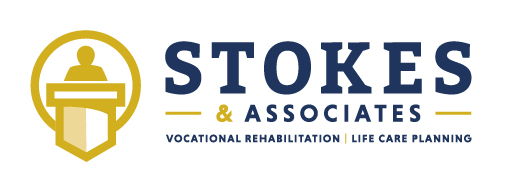Incorporating Telehealth into Modern Vocational Rehab and Life Care Planning
According to the American Telemedicine Association (2013), “telemedicine” or “telehealth” is the use of medical information exchanged from one site to another via electronic communications to improve a patient’s clinical health status. As vocational rehabilitation and life care plan experts, we do not offer medical treatment or opinions, however, we can leverage improving technologies developed in healthcare to reduce the cost and inconvenience to those we evaluate. For example, U.S. Department of Veterans Affairs has been an early adopter of telemedicine, and in 2013 alone, the VA treated more than 600,000 veterans for a total of 1.7 million episodes of care. Furthermore, video conferencing technology has been used in the United States state and federal courts for decades to accommodate logistical challenges associated with transporting incarcerated defendants to court for sworn testimony. However perhaps the most important development in legitimizing videoconferencing for the delivery of clinical services occurred when the Centers for Medicare and Medicaid services began reimbursing clinicians for services delivered via telemedicine in the early 2000s.
Members of Stokes & Associates have been using remote video conferencing solutions to perform clinical evaluations since 2010. We have likewise offered testimony accepted in court based on interviews conducted via video conferencing. Due to the nature of our professional methodology, we are able to collect the important information from some evaluees via video conferencing when in-person interviews are not possible. Several empirical studies confirm that patients and providers are generally satisfied with video conferencing (Modai, et al., 2006), and have shown high levels of user satisfaction and acceptance across diverse clinical populations (Richardson, et al., 2009).
Many of the largest healthcare-related professional organizations such as the American Medical Association, American Psychological Association, and American Psychiatric Association have adopted formal guidelines or position papers regarding the proper use of these video conferencing services. There are no formal positions articulated by the vocational and life care planning credentialing bodies or professional organizations, suggesting that development in technology is moving faster than policymakers.
Stokes & Associates has the capability to perform remote vocational and life care planning evaluations in certain instances over a HIPAA-secure, web-based private network. Please contact our office to learn more about how video conferencing and telehealth methods can reduce the costs of engaging our experts.
References:
American Telemedicine Association. (2013). Practice guidelines for videoconferencing-based online health services. Retrieved from http://www.americantelemed.org/practice/standarts/ata-standards-guidelines
Modai, I., Jabarin, M., Kurs, R., Barak, P., Hanan, I., & Kitalin, L. (2006). Cost effectiveness, safety, and satisfaction with video telepsychiatry versus face-to-face care in ambulatory settings. Telemedicine and e-Health, 12, 515-520.
Richardson, L.K., Frueh, B.C., Grubaugh, A.L., Egede, L., & Elhai, J.D. (2009). Current
directions in videoconferencing tele-mental health research. Clinical Psychology: Science and Practice, 16, 323-338.
We offer complimentary consultations concerning "hypothetical matters." To strategize with one of our experts at Stokes & Associates, please call David Barrett at 504-454-5009 or email dbarrett@stokes-associates.com.
Larry S. Stokes, Ph.D.
Aaron Wolfson, Ph.D.
Todd Capielano, M.Ed., LRC, CRC, LPC, CLCP
Lacy Sapp, MHS, CRC, LPC, LRC, CLCP
